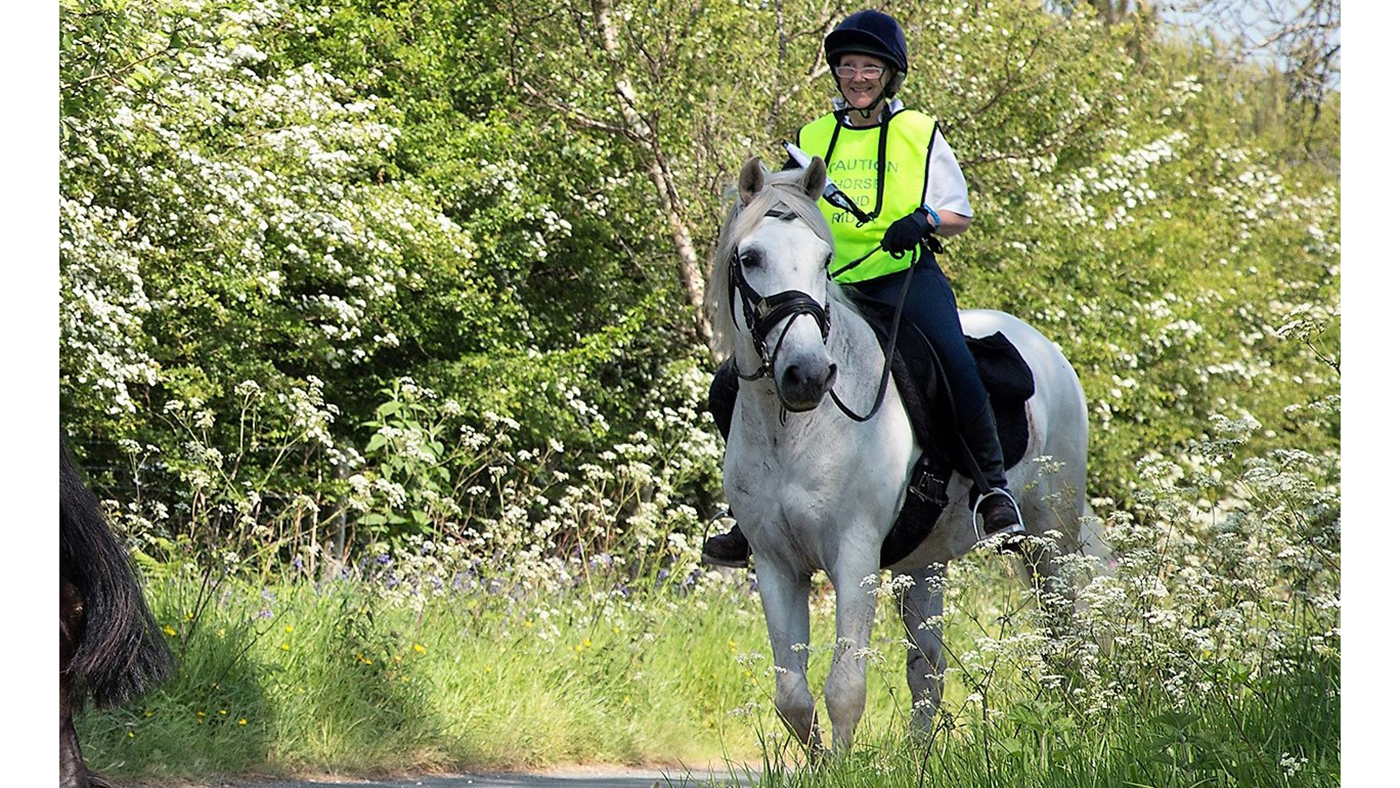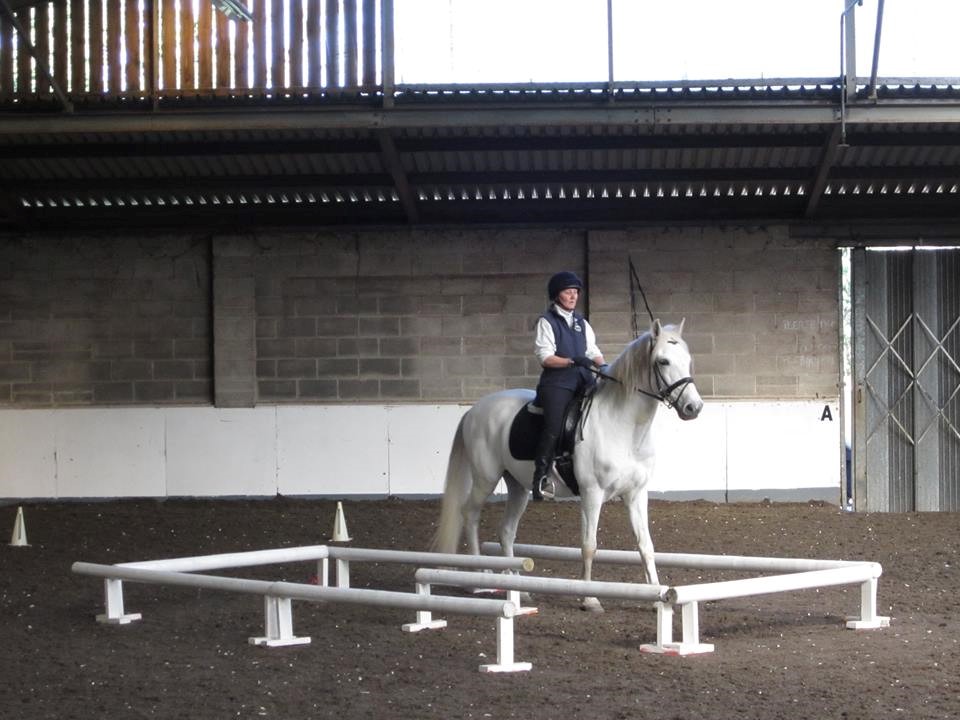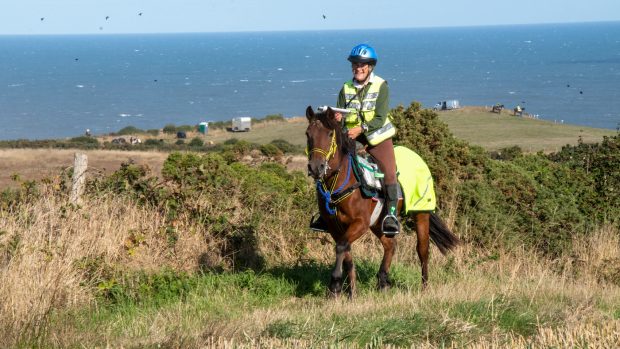TREC (which stands for Techniques de Randonée Equestre de Compétition) is a multi-discipline sport which originated in France. It began as a test of the skills required by French equestrian trek guides and grew into a competitive sport, which has now become very popular in the UK. It’s designed to improve the partnership between you and your horse, as well as teaching practical skills.
A full TREC competition consists of three stages, generally run over one or more days. The stages are:
POR (Parcours d’Orientation et de Régularité), which roughly translates as ‘test of orienteering and regulating gaits’). This involves orienteering over a set route at a set pace, navigating by an OS map and compass. To make sure that competitors haven’t gone off track and are maintaining a regular speed, several surprise checkpoints are positioned around the course.
MA (Maîtresse des Allures), which translates to control of paces (COP). Here, you’ll ride a corridor of a set length and width, going out at as slow a canter as possible and back at as fast a walk as you can. This is designed to test your horse’s training in his natural gaits and grew from the trail rider’s occasional need to leave a ride to perhaps go for help and then return to it without causing mass disruption.
PTV (Parcours en Terrain Varié) or ‘test over varied ground’ phase involves tackling a series of obstacles, designed to be or simulate natural hazards that you might find out riding in the open countryside. These can include anything from water and bridges to gates and mounting from the right hand side. If you have an inexperienced or young horse, you can choose not to complete certain obstacles in return for receiving zero points on them.
There are also arena competitions available which normally include the PTV and MA phases only.
There are four main levels of competition, with the difficulty levels rising with each one.

Gina King is an international TREC judge and trainer of international judges as well as a TREC GB national judge and approved judge trainer. She first became involved with the sport while living in France, and despite having no idea what to expect soon became “seriously hooked”. On her return to the UK, she set about helping to popularise the sport with taster days and TREC training while still competing herself.
“If you’re thinking of trying TREC, I’d say go for it. I doubt you can find a better all-round challenge and certainly not one that will be anything like as much fun!” she says. “There are so many ways you can get started — there’s something to suit everyone, from TREC tasters or training and arena TREC all the way through to full affiliated competitions where you could enter with a friend in the pairs class.

“For the rider, TREC encompasses many aspects of horsemanship, encouraging tactical riding and awareness of your environment. You gain experience from riding different areas and varied terrain, developing practical skills that enable you to negotiate the countryside safely, and it all helps to build a much closer bond with your horse. You both gain mutual respect as you work together developing skills that are easily transferred into other fields of equitation. I haven’t yet met a horse that hasn’t appeared to enjoy it. They seem to thrive on the challenges, and I think they really appreciate the diversity and variety involved.
“As a sport, it’s very inclusive. For any training or arena events you probably won’t need any special equipment as you can just use appropriate riding clothes and tack for hacking safely. To compete in a full competition you will need some compulsory items, for example a headcollar and rope, emergency ID, first aid kit for both horse and human, whistle and a mobile phone. A full list of compulsory and recommended items can be found in the TREC GB rule book available to download on their website. Don’t forget your reading glasses! You will need also highlighter pens to copy down the route, ideally a really thin gel nib so you don’t miss any detail.”
Gina recommends practising at home by making use of any natural obstacles you find out hacking, working on your horse’s walk and canter paces and practising orienteering.
To find events in your area, take a look at the TREC GB events diary, your regional BHS event page or local riding club websites.
For all the latest equestrian news and reports, don’t miss Horse & Hound magazine, out every Thursday
You might also be interested in:

Try something new – equestrian orienteering

Try something new — take your horse on holiday
If you’re looking for something new to try with your horse this year, then we’re here to help. Sara Walker

8 things we unquestioningly do, even though, thinking about it, it’s a bit weird

Subscribe to Horse & Hound magazine today – and enjoy unlimited website access all year round




